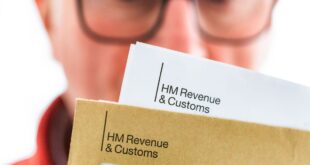
Thousands of Brits are calling for pension payments to be exempt from being taxed. An online petition demanding that State Pension payments be disregarded as income for the personal tax allowance has garnered over 6,700 signatures.
The personal tax allowance has been frozen at £12,570 since the 2021/22 financial year and will remain so until 6 April 2028.
David Bresnahan, the creator of the petition, contends that it is “wrong to tax the State Pension”. The petition, titled “make the State Pension tax exempt”, is posted on the petitions-parliament website and states: “We want the [UK] Government to make the State Pension tax exempt and not impact the tax threshold. We think it is wrong to tax the State Pension.”
As reported by the Daily Record, on reaching 10,000 signatures, the petition will warrant a written response from the UK Government. If it gets 100,000 signatures, the Petitions Committee would consider it for debate in Parliament.
The full petition can be viewed on the Petitions Parliament website.
In a separate development, a petition calling for the Personal Allowance to be increased to £20,000 – which has amassed over 252,000 signatures – was debated by MPs last month. However, the UK Government confirmed there are no plans to alter the £12,570 threshold.
As highlighted by the Daily Record, the New and Basic State Pensions saw a 4.1% increase in April, while additional elements rose by 1.7%. The Triple Lock ensures that the New and Basic State Pensions rise each year in line with whichever is highest between the average annual earnings growth from May to July (4.1%), CPI in the year to September (1.7%), or 2.5%.
The Labour Government has committed to uphold the Triple Lock for the forthcoming five years. The full New State Pension is now valued at £11,973 for the 2025/26 financial year, leaving just £597 before it surpasses the Personal Allowance threshold.
It’s crucial to note that individuals receiving the full New State Pension will not be subject to income tax. However, older people with additional income through employment, private or workplace pensions, may need to pay tax.
There’s been considerable speculation about the number of pensioners who will be taxed, but currently, out of the 13 million State Pensioners across the UK, approximately eight million (62%) already pay some tax in retirement, so this isn’t a new development.
With auto-enrolment in the workplace now in its 13th year, more individuals are set to benefit from increased income during retirement, which will likely be taxed – typically deducted from their private pension.
It’s crucial to comprehend that any tax due in retirement is calculated on the amount of income earned above the threshold, not the total additional income. For instance, if an individual has a total annual income of £13,000, they will pay tax on £430 – the sum exceeding the £12,570 threshold.
Those impacted would then need to pay HMRC 20% of their income above the threshold, which is the starter rate of tax in England.
Income rates and bands for England are as follows:.
- £12,571 to £50,270 – 20%
- £50,271 to £125,140 – 40%
- over £125,140 – 45%.
 Latest World Breaking News Online News Portal
Latest World Breaking News Online News Portal






